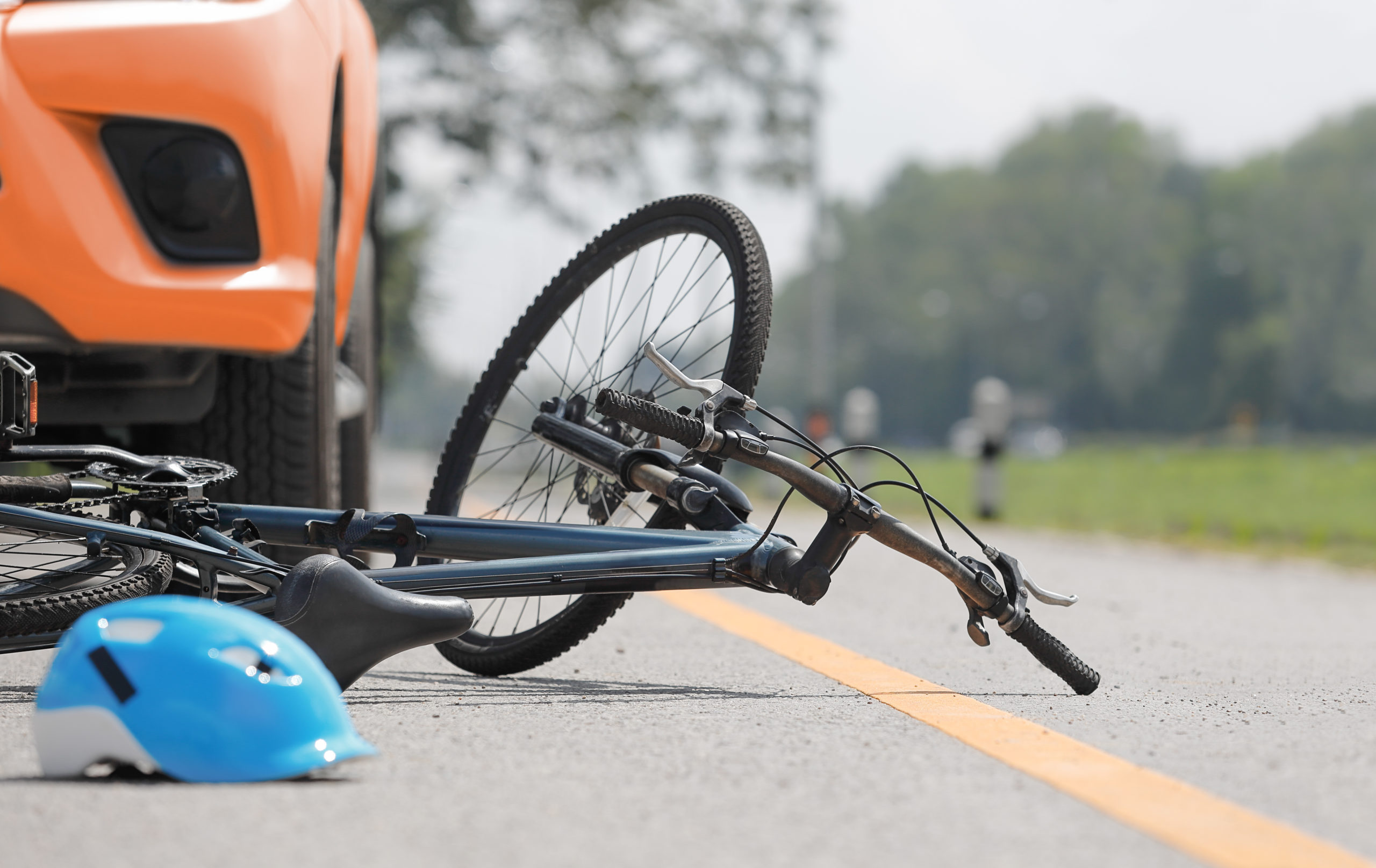 “Nothing is certain but death and taxes,” the old saying goes. Getting into a car accident is a pretty strong certainty, too. At least, the odds are pretty high. In fact, a few years ago, Forbes reported that a driver should expect to file a crash-related insurance claim at least once every 18 years. Since that Forbes article, the odds of getting into serious car crash may have actually gone up. The country is on pace to see 29,135 fatal car accidents in first 9 months of 2024, the National Highway Traffic Safety Administration (NHTSA) estimates. If that projection holds, the country will see an 11.5 percent rise in fatal car accidents from five years ago (32,893 in 2013). Crashes of any kind can carry serious costs. Based on 2013 data, the Centers for Disease Control and Prevention (CDC) estimates that crash deaths in our country cause about $44 billion in medical and work loss costs each year. In this article, we examine the specific long-term physical, emotional and financial effects that car accidents can have on people’s lives.
“Nothing is certain but death and taxes,” the old saying goes. Getting into a car accident is a pretty strong certainty, too. At least, the odds are pretty high. In fact, a few years ago, Forbes reported that a driver should expect to file a crash-related insurance claim at least once every 18 years. Since that Forbes article, the odds of getting into serious car crash may have actually gone up. The country is on pace to see 29,135 fatal car accidents in first 9 months of 2024, the National Highway Traffic Safety Administration (NHTSA) estimates. If that projection holds, the country will see an 11.5 percent rise in fatal car accidents from five years ago (32,893 in 2013). Crashes of any kind can carry serious costs. Based on 2013 data, the Centers for Disease Control and Prevention (CDC) estimates that crash deaths in our country cause about $44 billion in medical and work loss costs each year. In this article, we examine the specific long-term physical, emotional and financial effects that car accidents can have on people’s lives.
The Physical Effects of a Car Accident
If you get into a crash, you may be lucky enough to escape with only minor injuries – perhaps just a few scrapes and bruises. However, even if you believe that your injuries are minor, you should still see a doctor as soon as possible after an accident of any kind. Seemingly minor injuries could be signs of much more serious health problems. Also, due to the shock and adrenaline that a crash triggers, a person may not realize that he or she has suffered severe harm that may have a long-term impact.
Some of the Most Common Physical Injuries of a Car Accident are:
Cuts
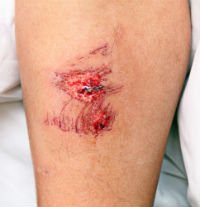 |
People who get into car accidents may suffer cuts from contact with sharp metal, broken glass and flying debris. If a person does not properly treat the cut, they may suffer a skin infection such as impetigo, an infection beneath skin tissue called cellulitis or a potentially life-threatening condition known as sepsis, Healthline notes. Cuts may also leave permanent scars which can only be removed through expensive cosmetic surgery. |
 |
Burns frequently occur in crashes in which the impact ruptures a fuel line or gas tank and, in turn, triggers an explosion. People may also suffer thermal burns from contact with hot parts of the vehicle or friction burns from being dragged for a distance. As the Mayo Clinic points out, burns can lead to permanent scarring as well as related problems such as contractures, or the tightening of skin, muscles and tendons due to scar tissue. |
Soft Tissue Damage
 |
Muscles, tendons and ligaments can sustain long-term damage due to the sudden, awkward body movements that a person experiences in a collision. For example, a rear-end collision may cause a person’s head to snap back-and-forth in a violent motion, strain soft tissue in the neck and cause a condition known as whiplash. This condition can lead to chronic pain and discomfort, according to the Cleveland Clinic. |
 |
A person’s body gets thrown around in a crash. The sudden movement can easily lead to wrist, arm, leg, ankle, collarbone and rib fractures. Many car accident victims suffer multiple fractures. Some fractures may heal in a matter of weeks. However, a severe fracture may take an extended period of time to heal and could result in a life-long disability. |
Loss of Limbs
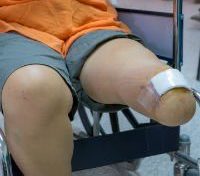 |
Nearly half of all people who live with a missing limb in the U.S. suffered the loss of limb due to a traumatic event such as an auto accident, according to stats compiled by the Amputee Coalition. A victim may suffer complications such as loss of mobility, infection, blood clots, muscle contractures and “phantom limb pain.” |
 |
The back and spinal cord are highly susceptible to damage in a crash. On one end of the spectrum, a car accident victim may suffer a lower back sprain or a slipped or bulging disc. The accident may aggravate a pre-existing back condition. On the other end of the spectrum, the victim may suffer damage to the network of nerves that runs down the spine and sends signals to the rest of the body. As a result, the victim may suffer partial or total paralysis, or the loss of feeling and use of one’s limbs. Paralysis may also lead to other complications such as pressure ulcers. |
 |
Even a low-speed accident can cause a driver or passenger to slam into the dashboard, window, seat or some other object in the car. Many victims suffer concussions without realizing it due to the shock and adrenaline. For this reason, it is important to always see a doctor after a crash. You should be examined for this “invisible” but serious injury. In cases of severe TBI, victims may fall into a coma and/or die from damage to the brain. |
Internal Organ Damage
 |
The impact in a crash may cause an object to puncture an organ or cause a compression of the organs. If internal bleeding occurs, it may be a sign of a serious and potentially life-threatening problem. The victim may go into shock. A skilled medical professional should take immediate steps to bring the bleeding under control and prevent long-term organ damage. |
Death
 |
NHTSA statistics show that the majority of people who die in traffic accidents are those in passenger vehicles. In first 9 months of 2024, there were 29,135 occupants of passenger cars who died in wrecks. Out of the 52,190 vehicles involved in fatal crashes in the U.S., 40,908 were passenger vehicles – 78 percent. Passenger vehicle deaths are highly likely when the crash involves a tractor-trailer. |
The Emotional Effects of a Car Accident
 As one doctor told WebMd, it is common for people to have high levels of stress long after an accident – even after a seemingly minor one. It is important for car accident victims to pay close attention to the emotional effects of the traumatic experience. They need to take signs of emotional distress seriously and seek help from a mental health professional. If the problems linger, it can disrupt your career and your relationships.
As one doctor told WebMd, it is common for people to have high levels of stress long after an accident – even after a seemingly minor one. It is important for car accident victims to pay close attention to the emotional effects of the traumatic experience. They need to take signs of emotional distress seriously and seek help from a mental health professional. If the problems linger, it can disrupt your career and your relationships.
Some of the most common emotional effects of a car accident are:
Anxiety
 |
The Anxiety and Depression Association of America (ADAA) reports that 6.8 million American adults live with some form of anxiety disorder. That number includes people who experienced a traumatic event such as an auto accident. Many psychiatric disorders fall into this category, including panic disorder, social anxiety disorder, separation anxiety and certain phobias. Irritable bowel syndrome (IBS) has also been linked to anxiety. |
Depression
 |
Depression is another common emotional effect of a car accident. The most common type of depression is major depressive disorder. It affects an estimated 16.1 million American adults each year, according to the ADAA. Overwhelming sadness and loss of interest in daily activities are signs of depression. A disorder may be diagnosed if symptoms persist for weeks. |
Personality and Behavior Changes
 |
After a crash, a victim may experience changes in their personality and behavior that don’t exactly fit into a neat category. They may be symptoms of different types of disorders. For instance, many people suffer delusions after a traumatic event. In other words, they believe something to be true even when presented with evidence to the contrary. Confusion, delirium, hallucinations and other types of disorganized speech and behavior are other types of changes that can occur, according to Merck. |
Sleep Disorders
 |
Stress from a traumatic event causes a wide range of sleep disorders, according to the National Sleep Foundation. The stress overstimulates the brain. In turn, it causes the release of neurochemicals such as epinephrine and adrenaline. Those neurochemicals can keep you awake, cause nightmares and flashbacks and, ultimately, disturb your sleep. Daytime fatigue can add to your problems. |
Post-Traumatic Stress Disorder (PTSD)
 |
Several years ago, University of Wisconsin Medical School researchers identified a specific type of post-traumatic stress disorder (PTSD) that was common among car accident survivors. They called it “subsyndromal” or “partial” PTSD. Victims with this condition tended to have: High levels of hyperarousal and re-experiencing symptoms and low levels of avoidance or emotional numbing symptoms. If you were in a severe accident, witnessed a severe injury or death, or perceived a life-threatening event, you face a high risk of developing PTSD, according to the Wisconsin medical researchers. A person with PTSD may be unable to work or maintain healthy relationships with friends or family. Many PTSD victims choose to “self-medicate” and develop addiction issues. |
The Financial Effects of a Car Accident
Every decade, the NHTSA studies the economic costs of motor vehicle accidents in our country. The most recent figures from 2010 are staggering. According to the agency, the total economic cost of traffic crashes in the U.S. was $242 billion. When quality-of-live valuations were considered, the total value of societal harm came out to $836 billion.
Here are the many financial effects of a car accident:
Property Damage
 |
A car accident can cause major cosmetic and mechanical damage to a car. The car’s actual cash value (ACV) will play an important role. (Check out Kelley Blue Book or Edmunds to get an idea.) If the cost of repairs is less than the car’s ACV, then an insurance company will likely agree to pay repairs. However, the car’s actual value will diminish with a crash on its record. If the cost of repairs exceeds the car’s ACV, the insurer will likely agree to pay the ACV. If you pay the car’s salvage value, you typically may keep the car and the salvage title. |
Medical Expenses
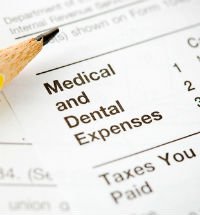 |
Medical treatment has the greatest financial effect on auto accident victims and their families. The costs can be exorbitant. This is especially true if a person suffers injuries that require surgery, hospitalization, medication, assistive devices and ongoing care and attention. For instance, the Christopher & Dana Reeve Foundation estimates that a person with paralysis will incur $518,904 in medical costs in the first year and $68,739 in every subsequent year. |
Living Adjustments
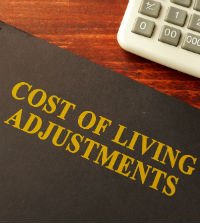 |
If a person suffers from a serious physical disability after a car accident, the person’s home may need to undergo extensive modification.. Today, the goal is to provide a person with a “universal design” that accommodates their unique needs when it comes to getting in and out of the home, using the shower and bathroom, cooking or using a computer. However, the remodeling costs can be extensive – and insurance may not cover it all. |
Loss of Income
 |
An accident victim may suffer from a partial or total disability that prevents the person from returning to work at full capacity or returning to work at all. When assessing lost income costs, it is important to look at the person’s average weekly earnings, education, training and experience as well as how many years the person would have likely worked. |
Loss of Services
 |
A person may contribute a great deal more to a home than income. The person may provide a wide range of services that have value such as mowing the lawn or taking care of the children. Due to the injuries suffered in an auto accident, the person may no longer be able to contribute those services. The costs of childcare and replacing other services can add up. |
Car Accidents Affect People in Different Ways
No two people are the same. That is why you can never generalize the physical, emotional and financial effects of a car accident. Everyone is affected differently. For instance, one person may be in great physical shape and recover quickly from a crash, while another person may be in more frail shape and never fully recover. The effects depend on a person’s unique injuries and other circumstances. However, the above has hopefully provided an overview of the many different types of effects that auto accident victims can suffer. The list is extensive. It underscores the importance of preventing auto accidents as well as protecting the rights of those who are harmed in crashes through no fault of their own.
How an Automobile Accident Lawyer in Boston Can Help
Getting involved in an automobile accident can be a traumatic experience that leaves you feeling overwhelmed and unsure of what steps to take next. From dealing with insurance companies to understanding your rights, the aftermath of an accident can be complex and confusing. This is where an experienced car accident lawyer in Boston can provide invaluable assistance. Let’s explore how a skilled attorney can help you navigate legal proceedings, protect your rights, and obtain the compensation you deserve.
Understanding Your Rights
After being involved in an automobile accident, it’s crucial to understand your rights under Massachusetts law. However, legal statutes surrounding accidents and personal injury claims can be intricate and difficult to comprehend without professional guidance. An automobile accident lawyer specializes in this area of law and has the expertise necessary to explain your rights clearly.
Evaluating Your Case
One of the primary roles of an automobile accident lawyer is to evaluate the merits of your case. They will thoroughly assess various factors such as the severity of injuries sustained, property damage, liability issues, and any potential negligence on the part of other parties involved. By conducting a comprehensive analysis, they can provide you with a realistic perspective on how strong your case is and what compensation you may be entitled to.
Dealing with Insurance Companies
Insurance companies are notorious for making it challenging for accident victims to receive fair compensation. They might employ tactics such as delay or deny strategies in order to minimize their payout. An experienced automobile accident lawyer understands these tactics and knows how to negotiate effectively with insurance companies on your behalf. Their goal is to ensure that you receive the maximum amount of compensation possible for medical bills, lost wages, pain and suffering, and other damages.
Investigation and Gathering Evidence
In order to build a strong case, it is essential to gather compelling evidence that supports your claim. This can include obtaining police reports, gathering witness statements, analyzing medical records, and consulting with accident reconstruction experts if necessary. An automobile accident lawyer has the resources and network to conduct a thorough investigation into the circumstances surrounding your accident. They will diligently collect and preserve evidence that strengthens your case.
Negotiating Settlements
Many automobile accident cases are resolved through settlements rather than going to trial. Negotiating a fair settlement requires skillful negotiation tactics and a deep understanding of personal injury law. An experienced automobile accident lawyer in Boston will vigorously negotiate with insurance companies or opposing counsel to reach a settlement that adequately compensates you for your injuries and losses. Their goal is always to protect your best interests and ensure that you receive just compensation.
Representing You in Court
While most cases settle before going to trial, some situations may require litigation to obtain fair compensation. If an agreement cannot be reached through negotiation, an automobile accident lawyer will zealously represent you in court. They will present your case before a judge or jury, utilizing their expertise in trial advocacy techniques to argue persuasively on your behalf.
Contact an Automobile Accident Lawyer in Boston Today
The aftermath of an automobile accident can be overwhelming, but you don’t have to face it alone. Hiring an experienced automobile accident lawyer in Boston can provide significant benefits throughout the legal process. From understanding your rights and evaluating your case to negotiating settlements or representing you in court if necessary, they are dedicated advocates who are committed to helping you obtain the justice and compensation you deserve. If you’ve been involved in an automobile accident, don’t hesitate to seek professional legal assistance of a skilled attorney can make all the difference in achieving a favorable outcome for your case. Call Michael Kelly Injury Lawyers today and schedule a free consultation.
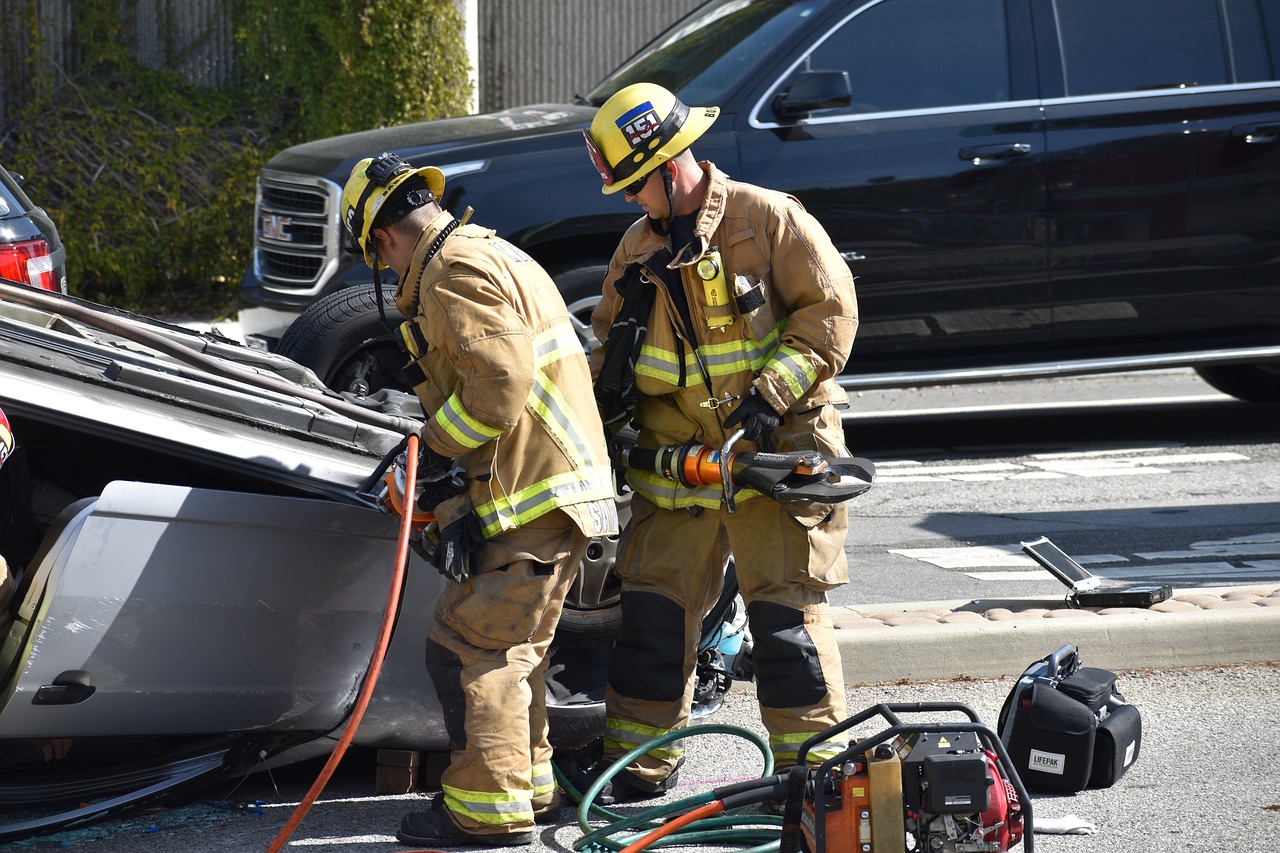









 As one doctor told WebMd, it is common for people to have high levels of stress long after an accident – even after a seemingly minor one. It is important for car accident victims to pay close attention to the emotional effects of the traumatic experience. They need to take signs of emotional distress seriously and seek help from a mental health professional. If the problems linger, it can disrupt your career and your relationships.
As one doctor told WebMd, it is common for people to have high levels of stress long after an accident – even after a seemingly minor one. It is important for car accident victims to pay close attention to the emotional effects of the traumatic experience. They need to take signs of emotional distress seriously and seek help from a mental health professional. If the problems linger, it can disrupt your career and your relationships.










 “Nothing is certain but death and taxes,” the old saying goes. Getting into a car accident is a pretty strong certainty, too. At least, the odds are pretty high. In fact, a few years ago, Forbes reported that a driver should expect to file a crash-related insurance claim at least once every 18 years. Since that Forbes article, the odds of getting into serious car crash may have actually gone up. The country is on pace to see
“Nothing is certain but death and taxes,” the old saying goes. Getting into a car accident is a pretty strong certainty, too. At least, the odds are pretty high. In fact, a few years ago, Forbes reported that a driver should expect to file a crash-related insurance claim at least once every 18 years. Since that Forbes article, the odds of getting into serious car crash may have actually gone up. The country is on pace to see 
